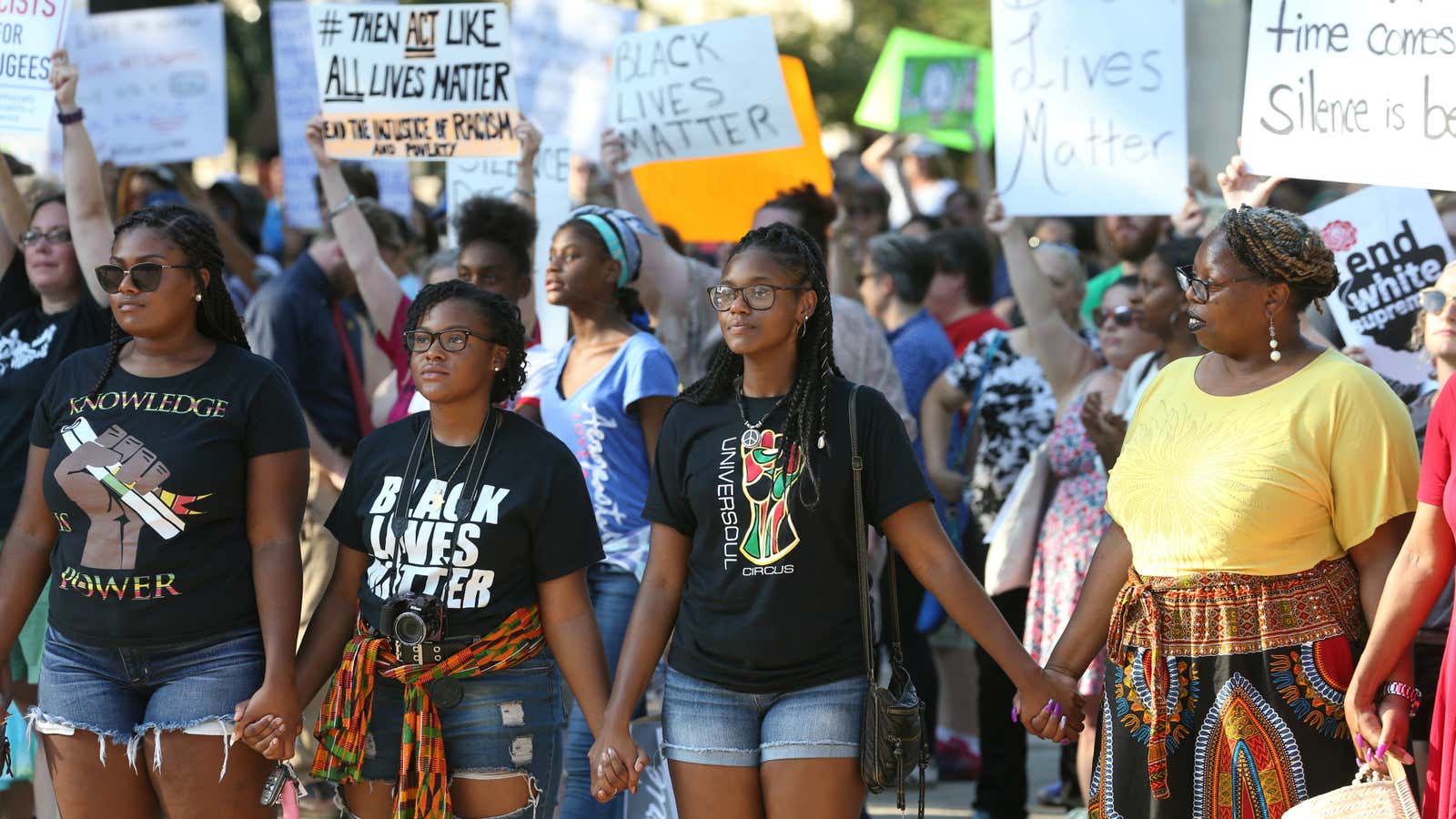Larry Fink, CEO of BlackRock, which manages more than $6 trillion of assets, said last week that “how to invest in environmental, governance, and social issues is becoming the number one conversation we’re having with clients.”
Environmental, social, and governance (ESG) investing is indeed the new hot topic in finance circles. By 2016, a quarter of the world’s professionally managed assets, such as stocks and bonds, were considered sustainable investment assets, according to the Global Sustainable Investment Alliance (pdf), and the share is expected to keep growing.
Major nonprofit and non-governmental organizations, like the NAACP and the YWCA, have found a way to take advantage of this moral turn in financial markets through another fashionable finance product: exchange-traded funds. The passive investment products, which track the performance of an index and can be traded on an exchange like a stock, are now a $5 trillion market, up from about $700 billion ten years ago.
By dangling the potential of inclusion in their ETFs, these groups are hoping to encourage good corporate behavior that aligns with their values. Corporations that promote equal pay, parental leave, socially-responsible supply chains, anti-discrimination policies, and community development programs can earn their way into these funds and tap capital from socially-minded investors, a growing class, especially as millennials become more active investors.
Impact Shares, a nonprofit investment company funded by grants totaling $1.3 million from the Rockefeller Foundation, is partnering with major social advocacy groups. In the past three months, Impact Shares has launched the Minority Empowerment ETF with the NAACP, a 109-year old US civil rights organization, and the YWCA Women’s Empowerment ETF, with the 160-year-old organization dedicated to eliminating eliminating racism and empowering women. Its most recent effort is the Sustainable Development Goals Global Equity ETF with the United Nations, the multi-national organization’s first-ever ETF.
Unlike other notable socially-minded ETFs, such as State Street’s gender diversity ETF, UBS’s gender equality ETF, or Just Capital’s ETF, which is based on a ranking of US companies by good business practices in collaboration with Goldman Sachs, the Impact Shares ETFs don’t have a major financial institution as a key partner.
“There are a lot of asset managers and traditional investment advisors launching these socially responsible funds but they really aren’t trained in financial activism,” said Ethan Powell, the CEO of Impact Shares, based in Dallas. “For us, it’s about providing the tools that existing social advocacy groups can use to take their message to the private sector.”
Powell, who has worked in financial services for 25 years, started working on Impact Shares full time in 2016. The arrangement between the Rockefeller Foundation, Impact Shares, and the charities allows them to cut out an asset manger that would charge traditional fees and speculate at what a good citizen would want in favor of “a social advocacy group that knows exactly what their expectations are of corporate America,” Powell said.
The traditional financial system still plays a role in helping sell the ETFs to their clients and building up the funds’ assets. Without an asset manager, the fees go to the charities. The groups aren’t expecting a windfall from these fees, certainly not at the start. Eventually, Impact Shares hopes the nonprofits will get about $500,000 for every $100 million invested but the ETFs each have less than $3 million invested at the moment.
Instead, it’s about finding an innovative way to get companies involved in their activism. “The NAACP has been known historically as a litigation-oriented activist group, so if they called you it was because they were calling to sue you, potentially,” Powell said. “This is providing those groups with a carrot to go along with the stick.”
